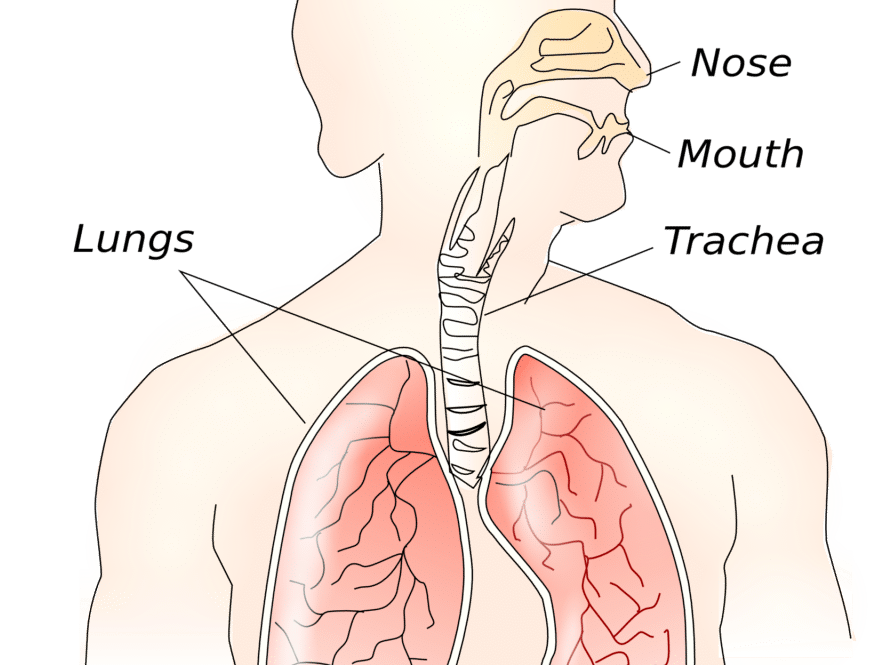Table of Contents
How to Heal Asthma Naturally
Natural asthma treatments, such as acupuncture, breathing techniques, and dietary changes, can effectively address the root causes of asthma. Asthma is a chronic obstructive pulmonary disease that causes breathing difficulties, wheezing, coughing, and other symptoms. Many asthma patients describe the sensation as feeling like they are underwater, struggling to breathe. This distressing experience can be severe, requiring emergency medical intervention in acute cases.
If you have asthma and are looking for alternatives to inhalers, steroids, or other medications, this article is for you. Let’s explore natural treatment options for asthma that can help you regain control over your health.
What is Asthma?
Asthma is a respiratory condition caused by inflammation and heightened sensitivity of the airways. This sensitivity leads to a narrowing of the air passages, resulting in coughing, wheezing, and shortness of breath. In Western medicine, asthma is classified as a chronic obstructive pulmonary disease (COPD) that occurs in episodes.
Asthma affects approximately 5% of the population, with children experiencing the condition at twice this rate. Essentially, asthma restricts the ability to breathe normally by narrowing the tubes through which air flows to the lungs.
Factors That Trigger Asthma
Several factors can induce or worsen asthma symptoms. These include:
- Respiratory Infections: Viruses or bacteria that cause illnesses like the flu can complicate asthma and trigger an attack.
- Allergens: Common allergens such as pollen, certain foods (e.g., milk and flour), animal hair, and dust mites can provoke asthma symptoms.
- Stress: Mental stress and tension can contribute to or exacerbate asthma attacks.
- Physical Activity: Strenuous exercise may place additional pressure on the respiratory system, leading to an asthma episode.
- Nutrition: Poor dietary habits, particularly those that encourage excess mucus production, can worsen symptoms.
- Weather Conditions: Extremes in weather—dryness, humidity, cold, or heat—can trigger asthma. Each individual’s sensitivity varies. For example, Chinese medicine suggests that dry weather may alleviate symptoms in individuals with excess dampness in the lungs but worsen conditions for those with dryness-related asthma.
- Medications: Certain medications may have side effects that induce asthma attacks.

Alternative Medicine for Asthma
Alternative medicine offers effective natural treatments for asthma, helping to ease breathing during attacks and improving respiratory health between episodes. Patients often report feeling their chest and airways open up, making breathing more profound and relaxed.
The most significant benefit of natural treatments for asthma lies in addressing the root cause of the condition. By targeting the source of asthma, such as lifestyle habits, environmental triggers, or emotional factors, alternative therapies can prevent or reduce the frequency of attacks. In some cases, this approach requires changes to daily habits as part of a comprehensive treatment plan.
Accurate diagnosis by a skilled practitioner is crucial. The cause of asthma can vary greatly, from poor nutrition and inactivity to emotional stress, environmental conditions, or internal imbalances like excess mucus or dampness. Combining multiple alternative therapies often produces the best results.
Below are some of the most effective methods for treating asthma naturally.
Acupuncture for Asthma Treatment
Acupuncture is highly effective in relieving asthma symptoms. It often provides fast results, easing breathing, expanding the bronchi, and relaxing the entire system. For long-term benefits, it is recommended to undergo at least 15 acupuncture sessions, followed by maintenance treatments as needed.
Chinese medicine emphasizes treating the root cause of asthma, which begins with a detailed diagnosis. Practitioners examine the pulse, tongue, and symptoms through a series of questions to determine the underlying imbalance causing asthma.
Asthma Syndromes in Chinese Medicine
In Chinese medicine, asthma is categorized into several syndromes, each requiring a tailored treatment approach.
- External Pathogens (Invaders):
- External factors like viruses or bacteria, considered “weather” pathogens (e.g., heat, cold, dampness), invade the body. Breathing difficulties in this syndrome often begin with flu-like symptoms that progress to asthma.
- Liver Qi Stagnation:
- Emotional stress or mental strain leads to stagnation of liver Qi, resulting in asthma attacks characterized by chest tightness and irritability.
- Heat in the Liver:
- This is an aggravated form of liver Qi stagnation, marked by more acute inflammation and louder wheezing.
- Lung Yin Deficiency:
- Yin represents body fluids in Chinese medicine. Deficiency in lung Yin causes dry coughing, often worse at night, due to dryness in the lungs.
- Kidney Weakness:
- The kidneys play a vital role in holding incoming breath. Weak kidneys can lead to difficulty inhaling deeply, a common issue in asthma caused by kidney deficiency.
- Spleen Weakness:
- Weakness in the spleen affects digestion, leading to sensitivity to dairy and white flour. This syndrome is often associated with excess mucus, wheezing, fatigue, and digestive disturbances.
While the lungs are always involved in asthma, they are not necessarily the primary factor. Patients may experience a combination of syndromes contributing to their condition. It is essential to understand that in Chinese medicine, the functions of internal organs differ from Western medical definitions. For example, a “liver problem” in Chinese medicine does not imply a physical disease of the liver organ.
Asthma and Weather Conditions
Chinese Medicine provides unique insights into why asthma patients respond differently to weather conditions. For example:
- A patient with internal dryness may find humid weather beneficial.
- A patient with internal dampness may benefit from dry weather.
- Similarly, some patients may improve with heat (if their condition originates from cold), while others may be aggravated by it.
This personalized approach highlights how environmental factors can either alleviate or worsen asthma symptoms based on the individual’s internal imbalances.
The Importance of Accurate Diagnosis for Asthma
In Chinese Medicine, an accurate diagnosis is critical because treatments must address the patient’s specific condition. For instance:
- A treatment for someone with internal cold and dampness in the lungs may harm someone suffering from dry heat in the lungs.
This underscores the importance of tailoring treatments to the individual, a key principle of Chinese Medicine.
After diagnosing the syndrome contributing to asthma, practitioners select appropriate treatments. These often include:
- Acupuncture: Balances the body and alleviates symptoms by addressing the root cause.
- Chinese Medicinal Herbs: Custom-prescribed formulas treat asthma without the side effects associated with conventional drugs. It is essential to take herbs prescribed by a qualified practitioner rather than purchasing them from a health store to ensure effectiveness and safety.
- Tui Na (Chinese Physiotherapy): This therapy helps release respiratory muscles and expand the chest, improving breathing.
- Qigong Exercises: Breathing and movement exercises strengthen the lungs and expand the chest.
A Case Study: Treating Asthma with Acupuncture
Scott, a 43-year-old patient, came to me after suffering from asthma for three years. His symptoms included breathing difficulties aggravated by physical activity, weather changes, and stress. He experienced wheezing, asphyxiation, nighttime snoring, and sleep apnea.
Using Chinese Medicine, Scott was diagnosed with an imbalance in the spleen and lungs, along with excess dampness in the body. His treatment plan included:
- Balance Method Acupuncture: Twice-weekly sessions helped regulate the spleen and lungs and reduce mucus.
- Chinese Medicinal Herbs: A customized formula strengthened his organs and eliminated phlegm.
- Dietary Adjustments: Scott avoided dairy, white flour, white sugar, and other foods contributing to phlegm formation.
After several weeks, Scott experienced significant improvement. His breathing difficulties and wheezing disappeared, and he no longer needed an inhaler. He also reported better sleep, with no snoring, which delighted his wife.

Recall Healing for Asthma Natural Treatment
Recall Healing addresses the subconscious emotional root causes of asthma and breathing difficulties. This therapeutic approach involves guided conversations to uncover unresolved emotional conflicts. Sessions typically last about 1.5 hours, and results are often observed after 3 to 5 sessions.
The emotional roots of asthma often trace back to life events, early childhood experiences, or even the genetic lineage of an individual. For example, the lungs are associated with grief and life transitions, such as the fear of death or memories of near-asphyxiation. Subconscious memories of events like “almost drowning” or other traumatic experiences can create emotional imprints that contribute to asthma.
Children’s Asthma in Recall Healing
One common emotional conflict linked to asthma is the subconscious message: “I want to breathe elsewhere.” This often manifests in children with asthma and is tied to the formative period known as the “Project Purpose.”
The Project Purpose includes:
- Nine months before conception
- The pregnancy period
- The first year of life
During this time, the emotional experiences of the parents significantly influence the subconscious patterns of the child. For example, a conflict can arise if the parents disagree about where to live after marriage or pregnancy. If one parent feels unsettled, this unresolved emotional tension may transfer to the child, resulting in asthma.
In Recall Healing for children, therapy is conducted with the parents. The child’s participation is not required. Once the conflict is identified, parents are guided to release the child from it. This is often done by speaking to the child during sleep, allowing their subconscious to absorb the resolution. The child’s brain then processes the information and releases the emotional hold on the body, frequently leading to rapid improvement or the disappearance of asthma symptoms.
Resolving the Emotional Conflict of Asthma
Not everyone who experiences emotional conflicts related to asthma will develop the disease. Asthma typically occurs when these conflicts are prolonged or particularly intense, and the brain suppresses them into the subconscious, manifesting as a physical condition.
Recall Healing helps uncover these subconscious conflicts and bring them into conscious awareness. Directed conversations allow individuals to resolve past emotional traumas, freeing the body from the need to hold on to them.
Many patients notice improved breathing within a few sessions. For chronic conditions where the body has sustained damage, combining Recall Healing with acupuncture and nutritional changes is recommended for comprehensive care.
Who is Recall Healing For?
While Recall Healing can be highly effective for asthma, it is best suited for individuals willing to explore sensitive topics and confront their emotional past. This process requires openness to self-reflection and emotional vulnerability, but it offers profound healing potential for those ready to engage.
A Case Study: Addressing Asthma with Recall Healing
Greg, a 36-year-old, had been living with asthma since the age of 18. His condition was more severe during his youth, but in recent years, he experienced light asthma attacks about once a month, typically triggered by strenuous activity. A recent acute asthma attack occurred after contracting the flu, requiring medical attention. Greg always carried an inhaler and avoided exercising due to fear of triggering an asthma episode. Wanting to improve his fitness and overall well-being, Greg decided to try a combination of Recall Healing and acupuncture treatment.
Exploring the Emotional Roots of Greg’s Asthma
Greg began by completing the Recall Healing questionnaire and asked his mother for details about the Project Purpose period—the time from nine months before conception, through pregnancy, to the first year of life. This period is significant in shaping subconscious patterns, particularly those influenced by parental conflicts.
Greg’s mother revealed that during this time, his father worked as a traveling salesman. His frequent trips left Greg’s mother feeling lonely and resentful, which she admitted still lingered in her voice as she recounted the events. Greg’s father, on the other hand, experienced a conflicting desire: while on the road, he wanted to return to his pregnant wife, yet when at home, his thoughts drifted toward work and his next trip. His father felt trapped between these two opposing desires—a subconscious conflict of “I want to breathe elsewhere.”
This tension reached a peak when Greg’s father missed his birth due to work commitments, creating guilt for the father and bitterness for the mother. These unresolved emotional conflicts likely imprinted onto Greg during the Project Purpose period.
The Role of Asthma’s Onset at Age 18
Greg’s asthma began at the age of 18 when he left home for the first time to study in another city. This life transition symbolized a form of “second childbirth,” during which his brain subconsciously revisited and recreated the emotional conflicts from his early childhood.
While living independently, Greg frequently oscillated between his new city for studies and medical treatments at his parents’ home, mirroring his father’s original conflict of wanting to be in two places at once—“I want to breathe elsewhere.”
Resolution and Recovery for Asthma
Greg was surprised by these patterns and acknowledged how they influenced his current life. He recognized his difficulty in deciding where to live and how he often felt torn between options—a theme consistent with his father’s experiences.
Greg underwent three Recall Healing sessions to address the emotional root of his asthma, along with five acupuncture treatments targeting his respiratory and digestive systems. During this time, he also followed a personalized plan to gradually introduce exercise into his routine.
Within a few weeks, Greg noticed significant improvements:
- He began exercising without experiencing abnormal respiratory symptoms.
- His reliance on the inhaler decreased.
- He felt a greater sense of emotional clarity regarding his life decisions.
This case study highlights the profound impact of Recall Healing in uncovering and resolving subconscious conflicts related to asthma. Combined with acupuncture, this holistic approach facilitated not only Greg’s physical recovery but also emotional healing.

Naturopathy as a Natural Treatment for Asthma
Naturopathy, combined with nutrition, plays a crucial role in managing asthma naturally. Many asthma patients report that dietary choices can either alleviate or worsen their symptoms. For example, dairy products and white flour are generally not recommended, as they contribute to the production of phlegm or mucus.
Naturopathic treatments target the digestive system, addressing its role in mucus production and its impact on lung health. By rebalancing the digestive system, naturopathy helps reduce the accumulation of mucus, which can trigger asthma symptoms.
Additionally, naturopathy strengthens the immune system through the use of vitamins and medicinal herbs. For individuals who may struggle to maintain a strict diet, combining nutrition with other methods like medicinal herbs, acupuncture, or Chinese medicine can enhance treatment outcomes. Once the digestive system is rebalanced, occasional indulgences in less optimal foods are less likely to lead to asthma attacks.
Tui Na and Massage for Asthma Relief
In asthma patients, the accessory respiratory muscles in the neck and shoulders often become overly strained. These muscles work harder during an asthma attack to expand the lungs, leading to chronic tension, neck and shoulder pain, and shallow breathing.
Typically, normal breathing relies solely on the diaphragm without requiring additional muscle involvement. Techniques such as Tui Na (Chinese medical massage), Shiatsu, or therapeutic massage can relieve tension in these muscles, improve rib cage mobility, and enhance lung capacity.
Releasing the respiratory muscles improves not only comfort but also the overall effectiveness of any asthma treatment, whether it involves naturopathy, acupuncture, or medicinal herbs.
Breathing Techniques for Asthma Relief
Breathing techniques, such as those practiced in Qi Gong, Yoga, or other disciplines, can greatly benefit asthma patients. These exercises can be done independently at home and are particularly effective in increasing the range of movement in the lungs and ribcage.
Simple Breathing Exercise
A foundational breathing exercise includes the following steps:
- Inhale deeply to your maximum capacity.
- Hold your breath for a few seconds.
- Exhale fully, expelling as much air as possible.
- Hold your breath again before restarting the cycle.
Repeat this exercise at least 10 times in a row, several times a day. If you feel dizzy during the exercise, this is a sign that your brain is receiving more oxygen than it’s accustomed to—a positive indication. Simply pause, relax for a few moments, and resume the exercise. These breathing exercises act as an “inner massage” for your respiratory system, enhancing lung capacity and function.
For more guidance, consult your therapist or a qualified Yoga or Qi Gong instructor to ensure proper technique.
Benefits of Alternative Medicine for Asthma
Unlike conventional treatments that primarily provide temporary relief, alternative medicine focuses on addressing the root causes of asthma and restoring the body’s balance. This approach not only reduces symptoms but also resolves underlying issues that contribute to the condition.
Patients often notice improvements in other areas of their health, including:
- Reduction of mucus buildup
- Improved sleep quality and elimination of snoring
- Relief from headaches and fatigue
- Decreased stress levels
- Enhanced energy and overall well-being
Many people become accustomed to living with asthma, its limitations, and dependence on medications that can have long-term side effects. However, natural treatments offer hope and sustainable solutions. The earlier you address the condition, the easier it is to reverse its effects. Better now than never!
Asthma Treatment in Modern Medicine
In Western medicine, asthma treatment primarily involves the use of bronchodilators and steroid inhalers. These medications are designed to:
- Alleviate symptoms during asthma attacks.
- Prevent recurrent attacks when taken daily or on a long-term basis.
However, it is essential to understand that conventional treatments do not address the underlying causes of asthma. They manage the symptoms but do not prevent the progression of the chronic disease or offer a cure.
Tips for Relieving Asthma
Every individual requires a personalized treatment plan based on their unique needs. However, here are some general recommendations that can benefit most asthma patients:
- Regular Physical Activity: Engage in activities like walking, swimming, or yoga, but avoid over-exertion as it may trigger an asthma attack. Begin gradually and protect yourself in cold weather if you’re sensitive.
- Nutrition: Tailor your diet to avoid mucus-producing foods, such as dairy products, white flour, and white sugar—commonly referred to as “the three whites.”
- Avoid Smoking: Stay away from both active and passive smoking, as it worsens asthma symptoms.
- Breathing Techniques: Practice diaphragmatic breathing (breathing deeply into the stomach) to improve lung function.
- Manage Allergies: Minimize exposure to allergens by:
- Shaking out carpets.
- Staying away from animals or high-pollen areas during spring and summer.
- Wearing a surgical mask if necessary.
- Seeking acupuncture treatment to address allergies.
- Stress Reduction: Incorporate stress-relief practices into your routine, such as meditation, reiki, Qi Gong, or yoga.
- Protect Against Cold Weather: Keep your neck and throat covered, and minimize exposure to cold or windy conditions.
- Strengthen the Immune System: Use Chinese medicine, vitamins, and regular physical activity to bolster your immune system.
Conclusion
We hope this article has given you valuable insights into managing asthma naturally and improving your breathing. By exploring holistic treatments like acupuncture, naturopathy, and Recall Healing, combined with lifestyle changes, you can address the root causes of asthma and experience lasting relief.
Remember, taking small, consistent steps toward better health can lead to significant improvements. We wish you a quick recovery, deep, full breaths, and a beautiful, healthy life!






